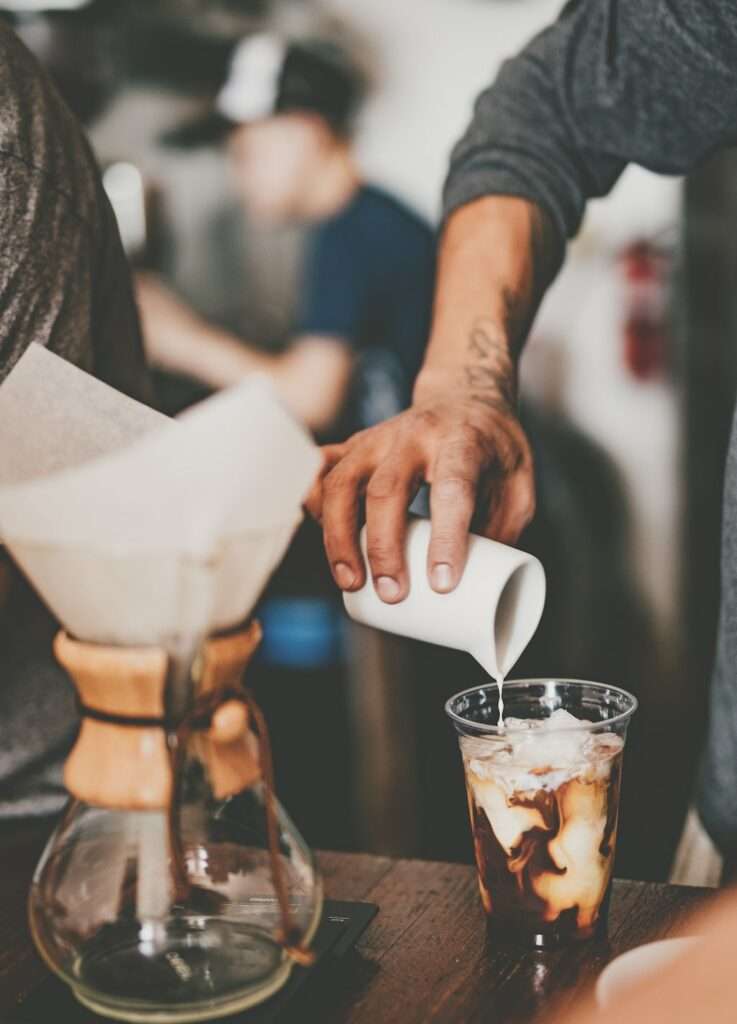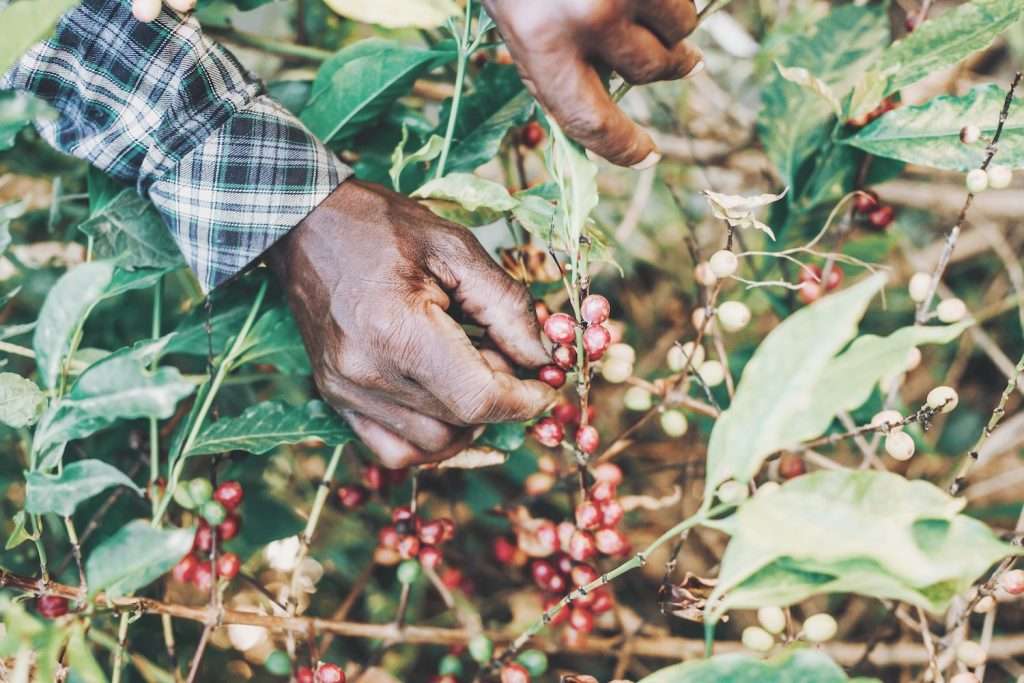Holistic Roasters is leading the way in a new era for coffee, with biodynamic and regeneratively grown coffee beans. Here’s why that matters more than you may think.
There are few moments more satisfying than the first sip of that early morning cup of coffee. For those who find themselves in this club, it’s not just the ritual that matters, but it’s the coffee beans themselves. There’s the source, the roast, the notes, and the preparation — a coffee lover savors all of it.
For the conscious consumer, there’s even more to that daily cup: the environmental and social impacts are just as crucial as everything else. Conventional coffee, though, is problematic. There are social justice issues Fair Trade is working to stamp out. There’s deforestation. And, conventional coffee is one of the world’s most heavily sprayed crops, which takes a toll on biodiversity, degrades the soil, and negatively impacts human health — both for the farmer who grows and picks the beans and the consumer savoring that first morning sip.

Things are changing, though. A number of coffee growers around the world are bringing organic, Fair Trade, and regenerative practices to the $42 billion global coffee market. Coffee chains and roasters are showing their support with ethical beans and brews. Dominique Jacques and Gregory Kalinin, co-founders of Holistic Roasters, created Biodynamic Coffee – a mold and toxin-free, single-origin coffee focused on regenerative and biodynamic farming methods.
Biodynamic certified coffee
Biodynamic certification standards are very high. Certified biodynamic productions prohibit the use of chemical fertilizers, pesticides (both natural and synthetic), herbicides, fungicides, and anything genetically modified. The certification also requires building a healthy ecosystem through biodiversity and water conservation.
For Holistic Roasters, all of this results in some of the highest quality, specialty-grade coffee on the market.
“The ethos of Holistic Roasters is deeply rooted in the principles of regenerative organic farming and its benefits. We want people to feel good about drinking our Biodynamic coffee not only because it’s one of the cleanest and healthiest but also because it’s one of the best-tasting coffees,” the founders told Ethos via email.
“When we started in 2018, quite a few people were familiar with biodynamic wines because of the numerous award-winning wineries such as Domaine Zind-Humbrecht in France, Montinore Estate in Oregon, and Quintessa in Napa Valley,” the founders say. However, there was almost no awareness that the same farming techniques that produce some of the world’s best wines could be applied to growing coffee.

Fast-forward to today and there are still only a handful of certified biodynamic coffee farms, which make it quite a rarity in the coffee world. “It’s part of our mission to support more farms in making the transition to this type of agriculture,” Jacques and Kalinin say.
Regenerative farming ensures the ecosystem — from soil to watersheds — are set up to thrive as a result of the crops, not becoming degraded and polluted common with conventional farming. The trend is catching on; just recently, the first regenerative organic-certified vanilla beans were produced in Indonesia for the female-led company Aliet Green. Regenerative farming has come to California’s Lundberg Family Farms and the practice is increasing its presence in the world of fashion, too.
‘It doesn’t look like a typical farm’
For coffee specifically, there are many steps before roasted beans are ready to be ground for your morning coffee, and according to Holistic Roasters, it starts with the health and fertility of the soil. “Great-tasting coffee comes from healthy soil, and you can see the results when harvesting the coffee,” the founders say.
“Perhaps the first thing you might notice about a biodynamic coffee farm is that it doesn’t look like a typical farm — there are no rows upon rows of uniform coffee trees — it’s integrated into the environment and feels (and acts) like a natural forest,” the founders say. “It’s a holistic approach to agriculture that aims to create a diverse, self-sustaining ecosystem that helps boost a farm’s natural fertility. It does this, in part, by focusing on improving the soil’s microbiome using natural compost, herbs, and minerals. This helps to increase organic matter in the soil which allows for rains to be more easily absorbed and replenish aquifers. It also helps improve life for farmers through larger yields and greater independence. We also think it produces the cleanest, tastiest coffee on earth.”

Similar to harvesting grapes for wine, coffee cherries rely on hand-selecting for optimal ripeness, says Jacques and Kalinin. “Unlike grapes, however, coffee cherries ripen at varying rates, even on the same branch, which adds a layer of complexity.” And although picking coffee by hand is labor intensive, it’s still the best way to ensure that only the highest-quality fruit is selected.
The company’s commitment goes beyond just the quality product — it’s also a supporter of Kiss the Ground, a California-based non-profit focused on regenerative agriculture and soil health. Healthy soil sequesters more carbon. One of Kiss the Ground’s main campaigns is Regenerate America — a bipartisan petition that calls on Congress to support regenerative agriculture in the farm bill. (The founders encourage everyone interested in supporting regenerative agriculture to consider signing the petition.)
Proof is in the sipping
But of course, all the best farming practices in the world don’t matter if the taste isn’t there. Does regenerative and biodynamic coffee taste as good as conventional? Indeed, says Jacques and Kalinin. They liken it to the difference between a regular tomato and an heirloom — biodynamic akin to the much tastier heirloom. The Holistic Roasters founders are biased, of course, but there’s some science that backs them up.
“Interestingly, a recent study published in the PeerJ Journal showed that crops grown using regenerative farming techniques had higher concentrations of some vitamins and minerals as well as phytochemicals and antioxidants,” they say. This not only makes the plants healthier and more resilient but the founders say these higher concentrations of beneficial compounds are the reason you can also “taste the difference.”
Biodynamic coffee from the Holistic Roasters comes in three blends, Rubicon (Light Roast), Rise & Shine (Medium Roast), and French Roast (Dark Roast). All are packaged in 100 percent compostable bags and certified to be mold and toxin-free. The coffee is available to purchase at biodynamic.coffee.
Related on Ethos:


